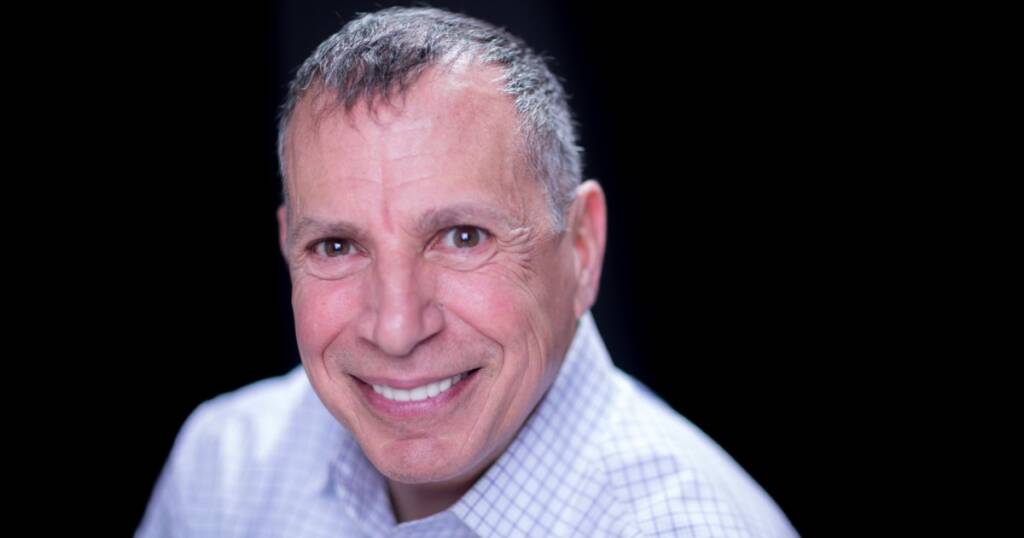
If you’re interested in the business side of food, what do you need to know to be successful? A hands-on understanding of the professional kitchen, knowledge of business subjects like finance and marketing, and “soft” skills like leadership, problem-solving, teamwork, and communication. CIA graduate and Associate Professor Jerry Fischetti is the embodiment of just this combination of skills, honed through his studies, his 20+ years in the back and front of the house for hotels, restaurants, and country clubs; and as a longtime CIA faculty member. Here, he shares what he and his students have learned is most important.
What drew you to the management side of the food industry?
It was during my CIA internship at a resort hotel that I quickly learned that cooking was enjoyable but it wasn’t going to be the career for me. I saw the leadership and the big-picture perspective on business at the hotel and I knew that was my affinity. I decided to cook for a few years after I graduated to make sure I really understood the kitchen, which was important if I was going to be effective in a leadership position.
What brought you back to the CIA to teach?
I was at the point in my career where I ready for a change, and my chef who I previously worked for in Atlanta said he could put me in touch with someone at the CIA. And I thought, yeah, I think I really want to teach. So I started teaching table service, and later I was on the opening team for the CIA Apple Pie Bakery Café and went back to school and got my master’s degree in organizational behavior. I’ve written basically all of the soft skills classes for the college within the School of Business and Management, as well as the Introduction to Hospitality course. Today, I’m teaching Industrial and Organizational Psychology, Organizational Behavior, Intro to Hospitality, and Professionalism and Life Skills.
Professionalism and Life Skills is one of the first courses CIA students take. You also teach some of the last ones they take as seniors. What changes do you see in your students over that time?
They really come into themselves, so to speak. I see many of them who, in the beginning, are unsure and apprehensive about being vocal or contributing and then, with the spectrum of experiences they have here, they develop into these wonderful young human beings who have a voice, who have a more clear direction of where they’re going. To me, that’s the biggest gift.

You stay in touch with former students. Why is that important to you?
My personal belief is that everyone needs a mentor in their lives. I still have one—Barbara is 83 years old and I’ve learned so much from her: she has served as a mirror, a source of inspiration, and someone who challenges my thought processes. So I’ve set myself up on Facebook and LinkedIn, and many times former students reach out to me. I think the value of their CIA degree is in the relationships that they’ve formed here; they are part of our community, and that should never have an expiration date.
Why do students need to understand business, management, and hospitality?
If you don’t have good business acumen, don’t even bother trying to be in business. Food is a business, and it’s one with slim profit margins, so you have to be savvy and knowledgeable. If you want to make money, part of that is understanding the human element. We are a labor-intensive industry, and to get high levels of productivity, you really need high levels of employee well-being. You hire a good team and you set up the conditions where people can flourish—that is the way to a strong, profitable company. So I believe students need to understand these things to be exceptional in their career, whether they’re managing their own business or someone else’s.
Who would you recommend the food business management program for?
First I would want to know: what’s your ultimate goal? Because the program and major you choose should be a stepping stone to that goal. If you’re telling me you have aspirations to be an entrepreneur, or manage a department, or grow with a larger organization, then our food business management degree or hospitality management degree (and optional intrapreneurship concentration for either program) would provide the spectrum of knowledge and information for you to be successful.
What about students who aren’t really sure what their ultimate goal is?
It’s interesting…many students don’t have a definitive idea of what they want to be. I tell them that it’s really OK at this point, but the reason you’re here is to help shape that lens on you and your future. And to get there, you need to be able to be present wherever you are in the program. You need to have a quiet mind, and then you will start to notice things. And if you’re noticing that you love meat class and you really don’t like accounting, that’s OK. We all have our preferences, and these should all be signals to you in helping to develop your plan of where you need to be going. I think that’s one of the biggest ways my area of expertise has helped students—it’s not telling them where they belong, but them discovering for themselves where they need to be.
Sounds like you take a mindfulness approach.
Absolutely; it’s everything. One of my former students came in a couple of weeks ago and talked to my class. He told me, “You know, I’ve learned that the stuff you’ve been teaching is the stuff that’s really important. I’ve found out that relationships are everything.” And this is a guy who said when he graduated that he would be very autocratic and demanding as a chef. The Harvard Business Review came out with an analysis of successful leaders that said the three attributes of leadership that really make a difference are mindfulness, empathy, and compassion. These are the elements that make a company successful—not only internally in terms of getting things done, but also for the guest experience.
What do you like most about your job?
The students! They’re so much fun. I have the best job in the world: I come in, we hang out, and we discuss situations and make connections to real-life craziness that’s all around us. We meditate at the start of class, and I tell them, “I’m actually teaching you a skill, like knife skills—and just like you’re getting better at chopping, you’re going to get better at managing yourself and being present.” We do end-of-class reflection papers, and most of the students say that meditation has been good for them. And my former students tell me they still use it on the job.
